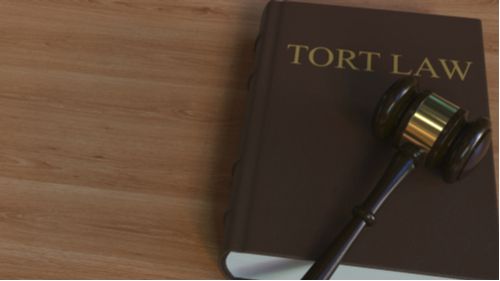One may assume that laws are universal when it comes to who and what you can sue and when you can do so, if you ever end up injured due to another party’s negligence. However, that is not always the case. The California Tort Claims Act establishes certain rules that people have to follow if they want to be compensated for injuries caused by certain individuals and entities.
It’s a law that you should become very familiar with. You can never be entirely sure when accidents will happen, which is why it’s imperative that you know exactly how to act to protect yourself.
Let’s get to know the California Tort Claims Act a little more.
Understanding Tort Cases
To gain a better understanding of this law, it will help to understand what tort cases are.
Tort cases are those that are considered civil breaches. They come up when a person or an entity commits a kind of act that infringes upon your rights.
The laws that govern tort cases will then seek to answer some basic questions. First of all, they will try to see if the other party can indeed be held legally liable for the civil breach that took place. On top of that, the laws will also help you pinpoint a certain amount of money that you can seek as compensation.
What’s important to point out about tort cases is that you can be compensated not just because someone did something that caused you injury. The responsible party can also be held liable if their inaction caused you injury, or if they failed to take action according to their legal duty.
For example, a pet owner doesn’t have to command their dog to go after you and then have the animal physically injure you before you can sue. Even if the dog just broke free from its leash and bit you, the laws are already likely to determine that you should be compensated for your injuries.
More often than not, tort lawsuits involve personal injury cases. That dog bite example is just one of them. To put it another way, it’s a case of negligence, because the owner of the dog did not do enough to ensure your safety.
Tort cases that double as personal injury cases also include intentional torts and strict liability cases. Intentional torts refer to those cases when the other party actually did intend to cause you harm. Someone punching you in the face unprovoked is a prime example of this. Notably, intentional torts can also involve cases where intentional damage was done to your finances or reputation.
There are also strict liability cases. In these, the party that caused you harm is not a particular person, but rather a company. Often, strict liability cases feature injuries caused by products or injuries that were sustained after a service was provided. It’s harder to win those strict liability cases if you’re the one suing.

Why Tort Cases Are Different When the Government Is Involved
Up until now, tort cases seem pretty straightforward, right? An individual or a company does or fails to do something that ultimately leads to you getting injured. You can then sue them so that they are held legally liable, compensating you for damages.
Tort cases are straightforward when they involve private citizens and entities. It’s a different matter altogether when a government entity is part of the proceedings.
There’s a judicial doctrine known as sovereign immunity, and it’s an important one to consider in potential tort cases. According to The Free Dictionary, sovereign immunity protects the government as well as its agencies, departments, and subdivisions “from being sued without its consent.”
The concept of sovereign immunity has roots in the way things were done centuries ago when kings and queens still held most of the power. They were meant to protect the ruling monarchs from any claims that their subjects could lodge against them, even in those instances where they did do something wrong.
From the perspective of an average individual, hearing about how the government being immune from being sued can understandably be frightening. No one should be above the law, so why should the government be exempt from being targeted in cases that can be lobbied against private individuals?
While it is indeed true that the doctrine of sovereign immunity affords protection to many public entities that are not provided to private individuals and companies, it is important to highlight the fact that they are not exempt from everything.
The Situations in Which You Can Sue the Government
Sovereign immunity is designed to protect the government from liability. More specifically, it is supposed to protect the public entities from being held liable for injuries.
Understanding how potentially unfair it is that the government and their employees can simply be absolved from all liability, lawmakers have created exceptions to the rule of sovereign immunity. These allow private individuals to gain some measure of compensation for any unfortunate incidents that may take place. Thanks to those exceptions, private individuals can make claims for monetary damages.
The California Tort Claims Act is an example of a set of rules that dictate when individuals may be able to seek compensation for injuries caused by public entities. You still won’t be able to sue the government for everything, but there will be instances where you can be compensated.
What Cases Are Covered by the California Tort Claims Act?
The great thing about the California Tort Claims Act is that it is reasonably comprehensive as it relates to coverage.
Included in this statute are claims of negligence. Negligence can be a broad term, but in the context of the law, it accounts for those instances wherein someone or some entity failed to exhibit the expected amount of care in a given situation. If a government employee failed to do something that they reasonably should have done in the interest of public safety, and that lapse in judgment ended up causing you injury, you will be able to file for money or damages.
Medical negligence is also covered in this California statute, which should give you more confidence to use public medical facilities.
Most other instances in which a public entity in California causes injury to a private citizen is covered by the Act, although there are some exceptions. You won’t be able to file a claim if the public entity that caused your injury is a member of the California National Guard, for example.
You should know that you can make a claim against the government in California even if they did not cause you any kind of physical harm. The Act still covers those cases where a breach of contract took place between a private individual and a government entity, or when the public entity in question proved to be a nuisance.
Private individuals can also file against the government if the actions executed by someone associated with the government caused damage to real and personal property.
Citizens of California do not have to worry too much about sovereign immunity because the Act provides them with ways to hold the government liable. The Act offers assurance to citizens that public entities cannot just act recklessly and be absolved from the consequences of their actions.
Who Are You Suing Under the California Tort Claims Act?
One of the most interesting quirks brought about by the presence of sovereign immunity, including the exceptions that have been created in order to address it, is that you are not directly filing claims against individuals under it.
There is a rule which states that the government is responsible for the actions of their employees. The California Tort Claims Act also prevents private individuals from directly suing a government employee.
The rules are set up this way due in part to the theory of vicarious liability. As noted by the Legal Dictionary from Law.com, the employer of a worker who causes injury to an individual while they are in the middle of doing their job can be held vicariously liable for damages.
What ends up happening in these cases is that the injured party will have to file a case, not against the person who directly caused them injury, but against the government entity that employs that person.
It’s not just people directly employed by the California government that they are vicariously liable for. If the government has hired independent contractors, and those workers are the ones causing injury to you, then you can turn around and make a claim against the government.
Remember the key distinction regarding California tort cases. Your injury, or injuries, must come as a result of a government employee performing the tasks related to their job before you can file a claim.
In essence, if the employee in question was not on the clock when they caused an injury, you may be unable to move forward with your claim.
How Do You Make a Claim Against the Government?
So what happens next if you were injured by a government employee and you want to file a claim in order to receive compensation?
The process can be complex, but the most important thing is for you to act quickly. As noted by Wikipedia, affected parties are given six months to submit their written notice from the day they are injured, or the day they discover that they are injured.
It is absolutely essential for the injured party to send the written notice as soon as possible. If the notice is sent too late, the government entity may dismiss the claim being made..Once the written notice has been sent, the government entity will have about 45 days to respond to it.
In some instances, the government entity may approve the claim right away, or at least accept parts of it. If your claim is approved, you can expect the government to compensate you, or at least seek some kind of settlement with you.
Another potential outcome is that the government entity returns the written notice. They may do this if the notice is missing important information. After receiving the returned notice, you can then updated it and send it back for approval.
The government entity may also respond by informing you that your claim has been rejected. They can also abstain from responding altogether to your written notice. You can take that to mean that your claim was not approved.
If your claim is not accepted by the government entity you want to be held liable, do not worry. You can still take action to protect yourself. What you can do at that point is to file suit against the government in state court. It is also important for you to act quickly because there are time limits that must be followed.

How Do You Write Your Claim?
You can end up in a long legal battle if your claim is rejected, so it’s best to put forth the best one possible right from the beginning.
Before getting started on your written notice, you will want to enlist the services of a personal injury attorney. You are not required to retain the services of an attorney at this juncture, but the reason you will want to do so is because they can help you write a complete and concise claim that the government will have a hard time rejecting.
They can advise you on what details you should include in the claim and which ones you can omit, if any. The attorney is there to ensure that you represent yourself in the best way possible, thereby making it evident to the government that your claim is valid and must be honored.
Another advantage to hiring an attorney early on in the process is that they can help you prepare for what will happen next if the government does not accept your claim.
Partner up with a Personal Injury Attorney and Receive the Compensation You Deserve
Going up against the government, even when you know you are in the right, can be intimidating. Ease your doubts and concerns by working together with the personal injury attorneys at Batta Fulkerson.
Contact Batta Fulkerson now and give yourself the best chance of winning your claim against the government.




